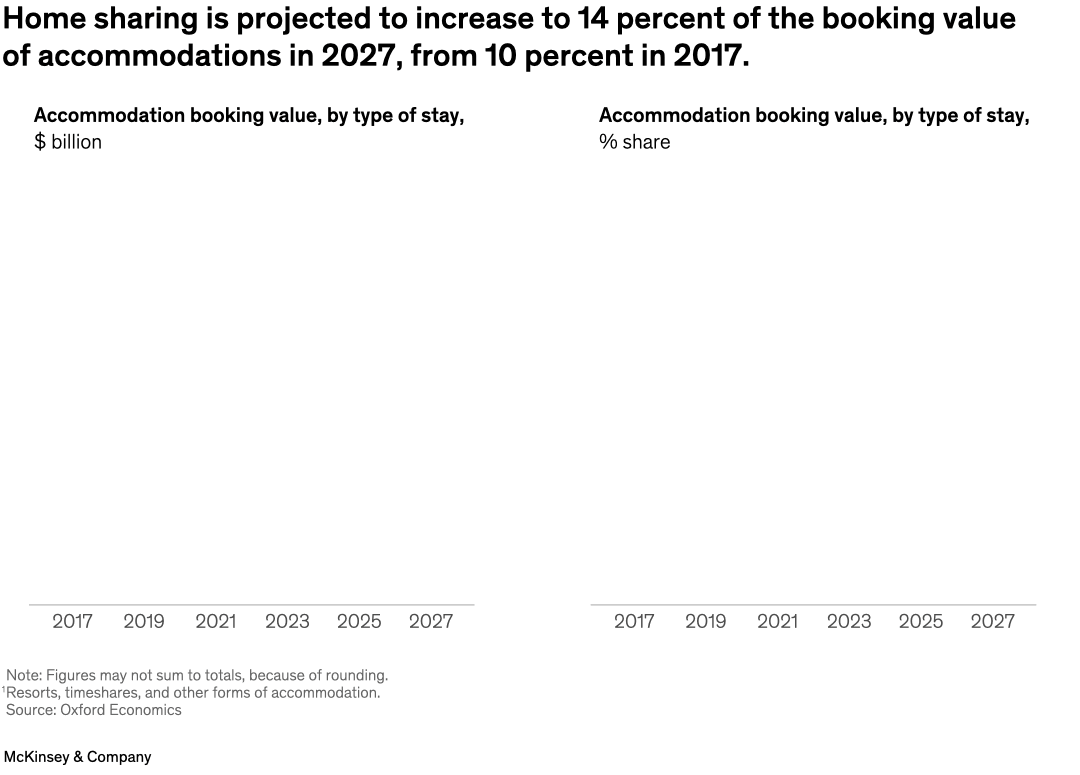Summer has arrived in the Northern hemisphere. All this week, our daily charts will focus on travel and tourism. We’ll explore shifting travel preferences, new business models, luxury travel, disruptions affecting the industry, and more.
The use of home-sharing options such as Airbnb has ticked up in recent years. The segment rose from 10 to 14 percent of accommodation booking by value between 2013 and 2017 and is projected to hit $232 billion by 2027. Senior partner Matteo Pacca and colleagues say that home sharing is here to stay and that providers have begun to lean in on what makes them different from other hospitality offerings while also providing a distribution channel for smaller hotels.

Image description:
A pair of segmented bar graphs show actual accommodation booking value from 2017 to 2023 and projected booking value from 2025 to 2027, all by type of stay. The annual data is segmented into hotels, home sharing, and other (which is composed of resorts, timeshares, and other forms of accommodation). The first graph is shown in billions of dollars annually, and the second is in percentage shares. Overall, the booking value has trended steadily upward, except during the period of the COVID-19 pandemic. It was $977 billion in 2017 and is a projected $1,657 billion in 2027. Each segment’s share has remained relatively steady, but home sharing is gradually eating into the market space. In 2017, hotels held 77% of the marketplace, and home sharing held 10%. The projected shares of the marketplace in 2027 are 75% for hotels and 14% for home sharing. Source: Oxford Economics.
End of image description.
To read the article, see “Six trends shaping new business models in tourism and hospitality,” May 29, 2024.